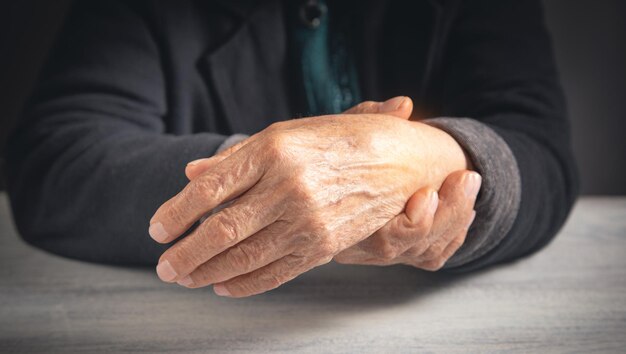Challenges in Caring for Parkinson’s Disease Patients in a Home Care Setting

Caring for patients with Parkinson’s disease (PD) in a home care setting presents unique challenges that require specialized knowledge, patience, and adaptability. Parkinson’s disease, a progressive neurodegenerative disorder, affects movement and can lead to severe physical and cognitive impairments over time. Understanding and addressing the difficulties faced by caregivers can improve the quality of care for PD patients and enhance their overall well-being.
- Managing Motor Symptoms
Tremors and Rigidity: One of the hallmark symptoms of Parkinson’s disease is tremors, which can make everyday tasks such as eating, drinking, and dressing particularly challenging. Rigidity and stiffness can also limit the patient’s range of motion and cause discomfort.
Bradykinesia: Slowness of movement, or bradykinesia, makes it difficult for PD patients to initiate and complete movements. This symptom can slow down all aspects of daily living, requiring caregivers to allow extra time for tasks and remain patient.
Balance and Gait Issues: Parkinson’s disease affects balance and gait, increasing the risk of falls. Home care providers need to ensure that the home environment is safe, with obstacles removed and safety aids like handrails and walkers readily available.
- Medication Management
Complex Regimens: PD patients often have complex medication regimens to manage their symptoms, requiring precise timing and dosages. Missing a dose or taking medication at the wrong time can lead to a significant increase in symptoms.
Side Effects: Medications for Parkinson’s disease can have side effects, such as nausea, dizziness, and orthostatic hypotension (a sudden drop in blood pressure when standing up). Caregivers must monitor for these side effects and report any concerns to healthcare providers.
- Cognitive and Emotional Challenges
Cognitive Decline: As Parkinson’s disease progresses, some patients may experience cognitive impairments, including memory loss, confusion, and difficulty with problem-solving. Caregivers need to provide reminders and support for daily activities while maintaining a calm and structured environment.
Mood Disorders: Depression, anxiety, and apathy are common among PD patients. Caregivers must be attentive to changes in mood and behavior, offering emotional support and seeking professional help when necessary.
- Communication Difficulties
Speech Problems: Parkinson’s disease can affect the muscles involved in speech, leading to soft, slurred, or monotone speech. Caregivers need to be patient listeners, encouraging the patient to speak slowly and clearly, and possibly using alternative communication methods such as writing or speech therapy tools.
- Daily Living Challenges
Personal Care: Assisting with personal care tasks such as bathing, dressing, and grooming can be difficult due to the patient’s motor symptoms. Caregivers need to be gentle, patient, and respectful, providing assistance while promoting as much independence as possible.
Feeding and Nutrition: Swallowing difficulties, known as dysphagia, are common in Parkinson’s disease and can lead to choking or aspiration. Caregivers must prepare easy-to-swallow, nutrient-dense meals and monitor the patient during eating.
- Social Isolation
Limited Mobility: The physical limitations imposed by Parkinson’s disease can lead to social isolation. Caregivers should encourage social interaction and find ways to keep the patient engaged in meaningful activities, whether through visits from friends and family, community programs, or virtual interactions.
- Caregiver Stress
Physical and Emotional Demands: The constant demands of caring for a PD patient can lead to caregiver burnout. It is crucial for caregivers to seek support, take regular breaks, and consider respite care options to maintain their own health and well-being.
Caring for patients with Parkinson’s disease in a home care setting presents a unique set of challenges, from managing complex motor symptoms and medication regimens to addressing cognitive and emotional difficulties. Effective care requires patience, adaptability, and a deep understanding of the disease’s progression. By focusing on safety, medication management, emotional support, and effective communication, caregivers can significantly enhance the quality of life for Parkinson’s patients.
Are you looking to secure either of these services? Schedule a free consultation with our expert nurses today!

Challenges in Caring for Parkinson’s Disease Patients in a Home Care Setting

Caring for patients with Parkinson’s disease (PD) in a home care setting presents unique challenges that require specialized knowledge, patience, and adaptability. Parkinson’s disease, a progressive neurodegenerative disorder, affects movement and can lead to severe physical and cognitive impairments over time. Understanding and addressing the difficulties faced by caregivers can improve the quality of care for PD patients and enhance their overall well-being.
- Managing Motor Symptoms
Tremors and Rigidity: One of the hallmark symptoms of Parkinson’s disease is tremors, which can make everyday tasks such as eating, drinking, and dressing particularly challenging. Rigidity and stiffness can also limit the patient’s range of motion and cause discomfort.
Bradykinesia: Slowness of movement, or bradykinesia, makes it difficult for PD patients to initiate and complete movements. This symptom can slow down all aspects of daily living, requiring caregivers to allow extra time for tasks and remain patient.
Balance and Gait Issues: Parkinson’s disease affects balance and gait, increasing the risk of falls. Home care providers need to ensure that the home environment is safe, with obstacles removed and safety aids like handrails and walkers readily available.
- Medication Management
Complex Regimens: PD patients often have complex medication regimens to manage their symptoms, requiring precise timing and dosages. Missing a dose or taking medication at the wrong time can lead to a significant increase in symptoms.
Side Effects: Medications for Parkinson’s disease can have side effects, such as nausea, dizziness, and orthostatic hypotension (a sudden drop in blood pressure when standing up). Caregivers must monitor for these side effects and report any concerns to healthcare providers.
- Cognitive and Emotional Challenges
Cognitive Decline: As Parkinson’s disease progresses, some patients may experience cognitive impairments, including memory loss, confusion, and difficulty with problem-solving. Caregivers need to provide reminders and support for daily activities while maintaining a calm and structured environment.
Mood Disorders: Depression, anxiety, and apathy are common among PD patients. Caregivers must be attentive to changes in mood and behavior, offering emotional support and seeking professional help when necessary.
- Communication Difficulties
Speech Problems: Parkinson’s disease can affect the muscles involved in speech, leading to soft, slurred, or monotone speech. Caregivers need to be patient listeners, encouraging the patient to speak slowly and clearly, and possibly using alternative communication methods such as writing or speech therapy tools.
- Daily Living Challenges
Personal Care: Assisting with personal care tasks such as bathing, dressing, and grooming can be difficult due to the patient’s motor symptoms. Caregivers need to be gentle, patient, and respectful, providing assistance while promoting as much independence as possible.
Feeding and Nutrition: Swallowing difficulties, known as dysphagia, are common in Parkinson’s disease and can lead to choking or aspiration. Caregivers must prepare easy-to-swallow, nutrient-dense meals and monitor the patient during eating.
- Social Isolation
Limited Mobility: The physical limitations imposed by Parkinson’s disease can lead to social isolation. Caregivers should encourage social interaction and find ways to keep the patient engaged in meaningful activities, whether through visits from friends and family, community programs, or virtual interactions.
- Caregiver Stress
Physical and Emotional Demands: The constant demands of caring for a PD patient can lead to caregiver burnout. It is crucial for caregivers to seek support, take regular breaks, and consider respite care options to maintain their own health and well-being.
Caring for patients with Parkinson’s disease in a home care setting presents a unique set of challenges, from managing complex motor symptoms and medication regimens to addressing cognitive and emotional difficulties. Effective care requires patience, adaptability, and a deep understanding of the disease’s progression. By focusing on safety, medication management, emotional support, and effective communication, caregivers can significantly enhance the quality of life for Parkinson’s patients.
Are you looking to secure either of these services? Schedule a free consultation with our expert nurses today!

